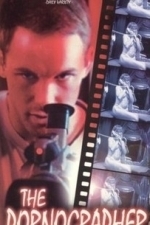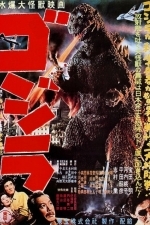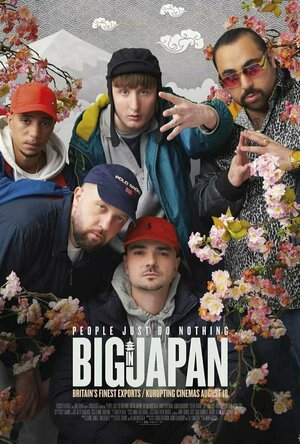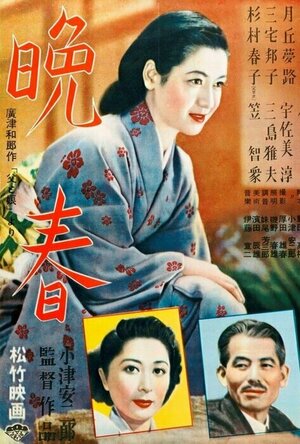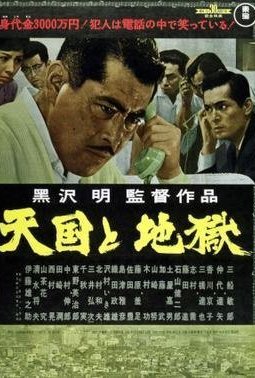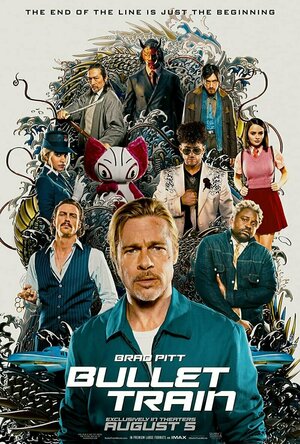Search
Jean-Pierre Gorin recommended The Pornographer (1999) in Movies (curated)
RəX Regent (349 KP) rated Godzilla (1954) in Movies
Feb 25, 2019
The beginning was inspired...
Contains spoilers, click to show
I was first introduced to Godzilla in cartoon form in the 1980′s as a child, but it wasn't until 1998, with Roland Emmerich's blockbuster reboot that I had seen the infamous beast on the pearl screen. I had also seem bits and bobs of the many original sequels as a child and they had made absolutely no impact on me what so ever! But I became aware of the significance of this, the original, only recently and it was due to this discovery that I hunted down the best copy available.
I ended up with the 2005 Region 1 release, which also includes the U.S. reworking from 1956, Godzilla: King Of The Monsters!. I could not have imagined that a the 1954 version of Godzilla, or more literally, Gojira, could have been so mature, so sombre, or so tempered with its sledgehammer philosophising. Produced just nine years after the devastating nuclear bombings of Hiroshima and Nagasaki, which effectively ended the Second World War, Gojira takes up the mantle on doing what Science Fiction does best, and created the cypher in the form of Godzilla, to represent the devastation left over from the nuking of these cities.
Godzilla is a nuclear beast, affected by U.S. nuclear tests and is now toxically radioactive and upon landfall on Tokyo, rains down, literally, nuclear destruction up on the city, in a manner not dissimilar too that levied upon either of the cities, Hiroshima or Nagasaki. But its not just about that. It about the creation of the next WMD which would ultimately be used against Godzilla but poses and moral dilemma that Robert Oppenheimer himself would appreciate, as to whether such a creation should be allowed to be developed. It also looks quite seriously into establishing the potential evolution of a creature such as Godzilla and uses plausible palaeontological arguments to justify his existence.
The pacing was good and though Godzilla strikes from almost the opening frame, there is a sense of an ongoing crisis rather than an impending apocalypse, with news outlets reporting throughout as plans, both military and civilian are sited.
All in all, this is not just the birth of the massive and largely corny and cheap Godzilla series, it is a striking, intelligent, moving and incredibly well judged masterpiece of 50′s cinema. But I should have known. Most rubbish franchises began with an inspired first movie, something to break the mould and this does the job perfectly.
But it isn't without its flaws. The special effects, though not all bad, are below par even for the time, but effective as for telling the story, some were very good with ALL being well conceived and ambitious. Some were very poor though, such as the model ships, which were unnecessarily below the standards and look like bath toys. But the cinematography was wonderful, with Honda shooting this in a classically manner. Tension was built brilliantly and the action rose to several crescendos and the excellent score by Akira Ifukube was not overused but brought to perfect effect when needed.
The acting was first-rate as well, proving Japanese cinemas reputation. But this was my first real foray into Japanese cinema, and what a treat it was. Many would look at this and see a cheap old film and others will see a film that whist let down by some less that brilliant visual effects and the fact that a lot of people, certainly in the U.K. find subtitles difficult, as a masterpiece not only of Eastern cinema but of cinema full stop. Truly realising its narrative and spirit, its cause and message. This was about a county in mourning not only for the hundreds of thousands lost by Fat Man and Little Boy, but for the war full stop. The 1950′s were a time of great political fear and reconstruction after WW2, and this is a film which taps into the brewing Cold War and fear of annihilation from human behemoths which once released can never be returned.
HIGHLY recommended but not for children as they will bore, miss the point, get put off by the subtitles, black and white and quite frankly its a mature and bleak film and not the 1998 remake. And thank God or Godzilla for that!
I ended up with the 2005 Region 1 release, which also includes the U.S. reworking from 1956, Godzilla: King Of The Monsters!. I could not have imagined that a the 1954 version of Godzilla, or more literally, Gojira, could have been so mature, so sombre, or so tempered with its sledgehammer philosophising. Produced just nine years after the devastating nuclear bombings of Hiroshima and Nagasaki, which effectively ended the Second World War, Gojira takes up the mantle on doing what Science Fiction does best, and created the cypher in the form of Godzilla, to represent the devastation left over from the nuking of these cities.
Godzilla is a nuclear beast, affected by U.S. nuclear tests and is now toxically radioactive and upon landfall on Tokyo, rains down, literally, nuclear destruction up on the city, in a manner not dissimilar too that levied upon either of the cities, Hiroshima or Nagasaki. But its not just about that. It about the creation of the next WMD which would ultimately be used against Godzilla but poses and moral dilemma that Robert Oppenheimer himself would appreciate, as to whether such a creation should be allowed to be developed. It also looks quite seriously into establishing the potential evolution of a creature such as Godzilla and uses plausible palaeontological arguments to justify his existence.
The pacing was good and though Godzilla strikes from almost the opening frame, there is a sense of an ongoing crisis rather than an impending apocalypse, with news outlets reporting throughout as plans, both military and civilian are sited.
All in all, this is not just the birth of the massive and largely corny and cheap Godzilla series, it is a striking, intelligent, moving and incredibly well judged masterpiece of 50′s cinema. But I should have known. Most rubbish franchises began with an inspired first movie, something to break the mould and this does the job perfectly.
But it isn't without its flaws. The special effects, though not all bad, are below par even for the time, but effective as for telling the story, some were very good with ALL being well conceived and ambitious. Some were very poor though, such as the model ships, which were unnecessarily below the standards and look like bath toys. But the cinematography was wonderful, with Honda shooting this in a classically manner. Tension was built brilliantly and the action rose to several crescendos and the excellent score by Akira Ifukube was not overused but brought to perfect effect when needed.
The acting was first-rate as well, proving Japanese cinemas reputation. But this was my first real foray into Japanese cinema, and what a treat it was. Many would look at this and see a cheap old film and others will see a film that whist let down by some less that brilliant visual effects and the fact that a lot of people, certainly in the U.K. find subtitles difficult, as a masterpiece not only of Eastern cinema but of cinema full stop. Truly realising its narrative and spirit, its cause and message. This was about a county in mourning not only for the hundreds of thousands lost by Fat Man and Little Boy, but for the war full stop. The 1950′s were a time of great political fear and reconstruction after WW2, and this is a film which taps into the brewing Cold War and fear of annihilation from human behemoths which once released can never be returned.
HIGHLY recommended but not for children as they will bore, miss the point, get put off by the subtitles, black and white and quite frankly its a mature and bleak film and not the 1998 remake. And thank God or Godzilla for that!
Bob Mann (459 KP) rated People Just Do Nothing: Big in Japan (2021) in Movies
Aug 20, 2021
Good jokes, most of which land (1 more)
Enough David Brent/Partridge moments to make you cringe
As a PJDN virgin, I still laughed a lot!
It’s brave then that such a relatively niche UK TV show should have a go at ‘jumping the shark’ onto the big screen. Would fans like it? And, just as importantly, would newcomers to the characters, like me, be able to enjoy the film as a standalone entity? The answer to the last question is a qualified “yes”.
Positives:
- It well-surpasses the “6 laugh test” for a comedy. There are some scenes that I found extremely funny, with others that rated highly for me on the David Brent / Alan Partridge scale of cringiness.
- I’ve seen comment that the story is "silly" and “unbelievable”. But having experienced the crazy clash between English and Japanese culture first hand, it strikes me as very true to form! The way in which the Japanese music execs try to stylise the ground as a ‘boy band’ (“Bang Boys”!), which Grindah greedily goes along with, is a nice satire on the music industry asserting its brand over musician’s art.
- A subplot of a love story beween the inept Steves and the cute Japanese translator Ishika (Ayumi Itô) is nicely done and strangely touching.
- The good news is that you don’t need any previous experience of the characters to get fun out of the movie: you can jump right in. That being said though, I’m sure fans of the series will get more out of this than I did.
Negatives:
- While the ending was uplifting, I was itching to know what fallout (or success?) there was from the event we witnessed. Perhaps if its a box office success (unlikely I think!) then there will be a sequel.
Summary Thoughts on “People Just Do Nothing: Big in Japan”: IMDB is littered with disastrous reviews of British TV shows that have tried and failed to make the leap from the small screen to the big screen. “On the Buses”; “Are You Being Served?”; “Steptoe and Son”; “Please Sir”; “Love Thy Neighbour” – the list is endless. They are mostly all horribly unfunny. Even the great “Morecambe and Wise”, although showing occasional moments of brilliance, struggled to fully land any of their three big-screen outings.
The ‘go-to’ of many of these efforts was to “go abroad”: take the well-loved characters and put them into a ‘bigger’ and stranger pool. So “People Just Do Nothing: Big in Japan” was following a well-trodden path here. It’s a tribute to the team and their TV-series director Jack Clough, in his feature debut, that they pretty much pull it off.
I’d like to agree with Kevin Maher of “The Times” that the movie is full of “Japanese stereotypes… drunken businessmen, passive giggling women etc”. But having travelled extensively on business in Japan, it seems pretty close to the mark with its observations to me! More importantly, the film never seems to be particularly derogatory or disrespectful of the culture. For example, they take their shoes off too much!
Key to its box office success will be whether or not it can attract an audience outside of its niche TV fan-bases. As a member of that sub-group, I really wasn’t expecting to enjoy this one, but I actually did. It was good fun, and if you want a good laugh at the cinema – a pretty rare thing – then I’d recommend this one, even if – like me – you haven’t seen the original TV show.
(For the full graphical review, please check out onemannsmovies on the web, Facebook and Tiktok. Thanks!)
Positives:
- It well-surpasses the “6 laugh test” for a comedy. There are some scenes that I found extremely funny, with others that rated highly for me on the David Brent / Alan Partridge scale of cringiness.
- I’ve seen comment that the story is "silly" and “unbelievable”. But having experienced the crazy clash between English and Japanese culture first hand, it strikes me as very true to form! The way in which the Japanese music execs try to stylise the ground as a ‘boy band’ (“Bang Boys”!), which Grindah greedily goes along with, is a nice satire on the music industry asserting its brand over musician’s art.
- A subplot of a love story beween the inept Steves and the cute Japanese translator Ishika (Ayumi Itô) is nicely done and strangely touching.
- The good news is that you don’t need any previous experience of the characters to get fun out of the movie: you can jump right in. That being said though, I’m sure fans of the series will get more out of this than I did.
Negatives:
- While the ending was uplifting, I was itching to know what fallout (or success?) there was from the event we witnessed. Perhaps if its a box office success (unlikely I think!) then there will be a sequel.
Summary Thoughts on “People Just Do Nothing: Big in Japan”: IMDB is littered with disastrous reviews of British TV shows that have tried and failed to make the leap from the small screen to the big screen. “On the Buses”; “Are You Being Served?”; “Steptoe and Son”; “Please Sir”; “Love Thy Neighbour” – the list is endless. They are mostly all horribly unfunny. Even the great “Morecambe and Wise”, although showing occasional moments of brilliance, struggled to fully land any of their three big-screen outings.
The ‘go-to’ of many of these efforts was to “go abroad”: take the well-loved characters and put them into a ‘bigger’ and stranger pool. So “People Just Do Nothing: Big in Japan” was following a well-trodden path here. It’s a tribute to the team and their TV-series director Jack Clough, in his feature debut, that they pretty much pull it off.
I’d like to agree with Kevin Maher of “The Times” that the movie is full of “Japanese stereotypes… drunken businessmen, passive giggling women etc”. But having travelled extensively on business in Japan, it seems pretty close to the mark with its observations to me! More importantly, the film never seems to be particularly derogatory or disrespectful of the culture. For example, they take their shoes off too much!
Key to its box office success will be whether or not it can attract an audience outside of its niche TV fan-bases. As a member of that sub-group, I really wasn’t expecting to enjoy this one, but I actually did. It was good fun, and if you want a good laugh at the cinema – a pretty rare thing – then I’d recommend this one, even if – like me – you haven’t seen the original TV show.
(For the full graphical review, please check out onemannsmovies on the web, Facebook and Tiktok. Thanks!)
Kirk Bage (1775 KP) rated Late Spring (1949) in Movies
Jan 28, 2021
As elegant, patient, polite and deliberately still as a side of civilised Japanese life that existed both at the time and for decades before and after. Difficult for our modern western sensibilities to readjust to. It is just so slow and seemingly eventless. It concerns the life of 27 year old Noriko, played by Ozu’s muse Setsuko Hara, with whom he made many of his best loved films. She is constantly hassled by family members and friends to get married, but is much more concerned by her relationship with her sick father, who she is content to care for. The more she is pushed the more her polite smile becomes a rictus of hidden sadness and anxiety. Small meetings, quiet words and subtle gestures take on larger meanings, and the story becomes more tragic the more you engage with Hara’s lovely performance.
I did find it hard to relate to, and couldn’t quite find the stillness within myself to just go with it. Its pace made me jittery to do something more exciting, and it wasn’t quite as transcendingly beautiful as I’d been led to believe. Saying that, I appreciated the skill of Ozu’s camera work, in framing and capturing delicate scenes and moments. I also learned the phrase “tatami cam”, which describes the low angle he often uses to demonstrate humility and respect. A gentle tale with great resonance regarding our responsibilities to others and our own repressed desires. Most interesting in how it contrasts with western cinema of the same time.
I did find it hard to relate to, and couldn’t quite find the stillness within myself to just go with it. Its pace made me jittery to do something more exciting, and it wasn’t quite as transcendingly beautiful as I’d been led to believe. Saying that, I appreciated the skill of Ozu’s camera work, in framing and capturing delicate scenes and moments. I also learned the phrase “tatami cam”, which describes the low angle he often uses to demonstrate humility and respect. A gentle tale with great resonance regarding our responsibilities to others and our own repressed desires. Most interesting in how it contrasts with western cinema of the same time.
CS
Cycles, Sequels, Spin-Offs, Remakes, and Reboots: Multiplicities in Film and Television
R. Barton Palmer and Amanda Ann Klein
Book
With sequels, prequels, remakes, spin-offs, or copies of successful films or franchises dominating...
Kirk Bage (1775 KP) rated High and Low (1963) in Movies
Jan 28, 2021
This movie is often touted as one of the finest non-American crime thrillers out there. It appears on many top 10 lists from renowned directors, and stands untouchable in the pantheon of post WWII Japanese cinema dealing with 20th century issues rather than samurai or traditional religious concepts. Kurasawa is known for masterpieces in both genres, and in this sphere is very much the Hitchcock of the East. The story sees self made entrepreneur Kingo Gondo, played by the ubiquitous Toshirô Mifune, being blackmailed by a kidnapper who believes he has his son, but has taken his chauffeur’s son by mistake. Cue huge moral intrigue and dilemma, leading to a chase and an unexpectedly symbolical climax and resolution.
It plays like two films for the price of one, the first a claustrophobic mood piece with a staged feel, reminding me of Hitchcock’s Rope, and the second a frantic chase movie where the forensic evidence is picked apart in intricate detail, like a less graphic Seven. The print on BFI is not great, so it actually feels older than it is. It is also pretty long at 143 minutes, and feels like it takes an age to get going. Therefore, although some moments and key images have stayed with me, I can’t honestly say I felt gripped or tense in any way. The stakes didn’t feel as high as I would have hoped for, and tonally it is a little uneven. In conclusion, it has much to offer and details in isolation are very impressive, but for me it was something of a let down.
It plays like two films for the price of one, the first a claustrophobic mood piece with a staged feel, reminding me of Hitchcock’s Rope, and the second a frantic chase movie where the forensic evidence is picked apart in intricate detail, like a less graphic Seven. The print on BFI is not great, so it actually feels older than it is. It is also pretty long at 143 minutes, and feels like it takes an age to get going. Therefore, although some moments and key images have stayed with me, I can’t honestly say I felt gripped or tense in any way. The stakes didn’t feel as high as I would have hoped for, and tonally it is a little uneven. In conclusion, it has much to offer and details in isolation are very impressive, but for me it was something of a let down.
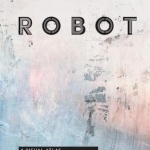
Robot: Visual Atlas from Ancient Greece to Artificial Intelligence
Book
From Ancient Greece onwards, humans have been swept up in a race to replicate and rebuild...

Audyssey MultEQ Editor app
Music and Entertainment
App
The latest Denon Marantz audio video products use Audyssey MultEQ for simple, accurate set-up...
BankofMarquis (1832 KP) rated Bullet Train (2022) in Movies
Aug 10, 2022
Ultra-Violent...and a TON of Fun!
Early conversations surrounding the new Brad Pitt action flick BULLET TRAIN label this film as “Ultra-Violent”.
They say this as if it is a bad thing.
Directed by David Leitch (DEADPOOL 2) with a screenplay by Zak Olkewicz (FEAR STREET: PART TWO) and based on the book Kotaro Isaka, BULLET TRAIN is (no arguing here) an Ultra-Violent action flick in every sense of the term, set on the famed titular Japanese Bullet Train and follows an operative by the codename Ladybug (played by Pitt who you know from such gentle fair as FIGHT CLUB and INGLORIOUS BASTERDS) who’s easy “snatch and grab” job is nothing easy thanks to the appearance of various other nefarious individuals who also are looking for that case.
Following in the footsteps of such similarily-violent flicks as NO COUNTRY FOR OLD MEN, TRAINING DAY, FARGO and just about anything Directed by Quentin Tarantino, Director Leitch uses the violence, mayhem and bloodshed to ADD to the story (which all of the aforementioned films also did with great affect) and not “just” to be violent. And that’s an important distinction here. If the ultra-violence is fun and important to moving the story and plot along (and not just there to be gratuitous), then the movie can succeed quite well - and this one does.
What also makes these types of movies succeed is the plotting - which is sharp by writer Okewicz - and the twists and turns that you do not see coming - but make sense along the way (and will reward the viewer upon repeated viewing) and Bullet Train does this as well. It is a smartly made film that is crisply directed with some terrific action sequences (though, if I’m being fair, at times the CGI is not as good as it could/should be), but it is entertaining as all get out.
Leading us through this mayhem is the always charming and charismatic Pitt who parlays the “goofball” personae of a person in just a little over his head but comes out on top due to luck (or skill) - you be the judge. Pitt is the perfect performer for the audience to become invested in as he is the one that you need to be rooting for throughout - and you do from just about the beginning.
Leitch, wisely then, surrounded Pitt with some terrific character actors in this venture. From Aaron Taylor-Johnson (KICK-ASS) to Brian Tyree Henry (GET OUT) to Joey King (THE CONJURING) to the always terrific Hiroyuki Sanada (MORTAL COMBAT) and a host of others who do extended cameos - and to name them would be to spoil the fun of them. They all understand what type of film they are in and all seem to be having a good time going along with it all.
And why not? Bullet Train is a delight in the cinema - for those of you who like action and violence that is pretty spectacular and over the top. It is a heckuva lotta fun.
Letter Grade: A-
8 Stars (Out of 10) and you can take that to the Bank(ofMarquis)
They say this as if it is a bad thing.
Directed by David Leitch (DEADPOOL 2) with a screenplay by Zak Olkewicz (FEAR STREET: PART TWO) and based on the book Kotaro Isaka, BULLET TRAIN is (no arguing here) an Ultra-Violent action flick in every sense of the term, set on the famed titular Japanese Bullet Train and follows an operative by the codename Ladybug (played by Pitt who you know from such gentle fair as FIGHT CLUB and INGLORIOUS BASTERDS) who’s easy “snatch and grab” job is nothing easy thanks to the appearance of various other nefarious individuals who also are looking for that case.
Following in the footsteps of such similarily-violent flicks as NO COUNTRY FOR OLD MEN, TRAINING DAY, FARGO and just about anything Directed by Quentin Tarantino, Director Leitch uses the violence, mayhem and bloodshed to ADD to the story (which all of the aforementioned films also did with great affect) and not “just” to be violent. And that’s an important distinction here. If the ultra-violence is fun and important to moving the story and plot along (and not just there to be gratuitous), then the movie can succeed quite well - and this one does.
What also makes these types of movies succeed is the plotting - which is sharp by writer Okewicz - and the twists and turns that you do not see coming - but make sense along the way (and will reward the viewer upon repeated viewing) and Bullet Train does this as well. It is a smartly made film that is crisply directed with some terrific action sequences (though, if I’m being fair, at times the CGI is not as good as it could/should be), but it is entertaining as all get out.
Leading us through this mayhem is the always charming and charismatic Pitt who parlays the “goofball” personae of a person in just a little over his head but comes out on top due to luck (or skill) - you be the judge. Pitt is the perfect performer for the audience to become invested in as he is the one that you need to be rooting for throughout - and you do from just about the beginning.
Leitch, wisely then, surrounded Pitt with some terrific character actors in this venture. From Aaron Taylor-Johnson (KICK-ASS) to Brian Tyree Henry (GET OUT) to Joey King (THE CONJURING) to the always terrific Hiroyuki Sanada (MORTAL COMBAT) and a host of others who do extended cameos - and to name them would be to spoil the fun of them. They all understand what type of film they are in and all seem to be having a good time going along with it all.
And why not? Bullet Train is a delight in the cinema - for those of you who like action and violence that is pretty spectacular and over the top. It is a heckuva lotta fun.
Letter Grade: A-
8 Stars (Out of 10) and you can take that to the Bank(ofMarquis)
